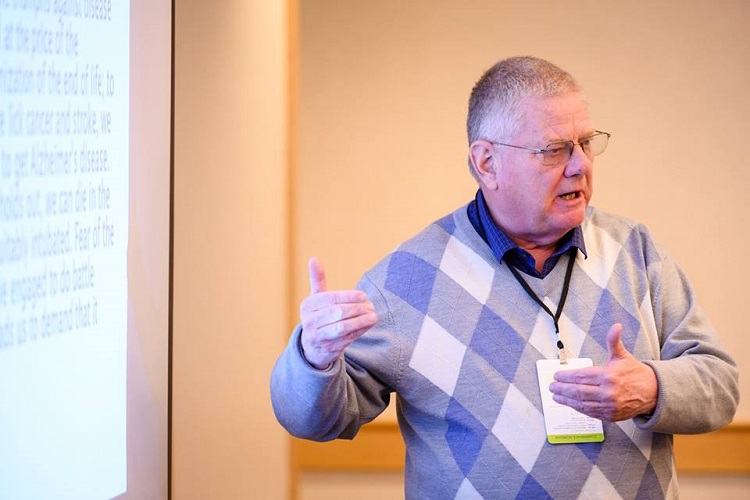Tomorrow is the final day of our Devotions for Life (Fearfully and Wonderfully Made) series, in honor of the Allen County March for Life. The CTSFW Life Team will be in attendance at the march, alongside other churches, organizations, individuals, and anyone else in the community who would care to join us. Information can be found here: https://www.facebook.com/events/2270899919808018/.
A week ago, members of the CTSFW Life Team were also at the March for Life in Washington, D.C. Assistant Professor of Pastoral Ministry and Missions, the Rev. Prof. John T. Pless, also spoke that weekend at the LCMS Life Conference in the capital, on the topic of “Mercy at Life’s End,” guiding participants with his booklet under the same title. The presentation focused on how Christians might best respond to the legalization of physician-assisted suicide in many states, and how “Ethics as Gifts” informs the way a Christian receives life and death from the hand of the Lord.

He drew the phrase from the Lutheran theologian, Oswald Bayer, who says that ethics begins not with the question, “What must I do?” but “What have I been given?” In Professor Pless’s words:
“When it comes to end of life and the way we care for those who are irretrievably dying, we begin with the realization that the dying person is a human being and has been given life by our Creator. That life, even though it may be now diminished by age, accident, or disease remains worthy of care even if there is no cure. We do not take life; we are given life.
“To use the words of another Lutheran ethicist, Gilbert Meilaender, our motto is ‘always care, never kill.’ Because life is a gift entrusted to us by our Heavenly Father, redeemed by the blood of His Son, and sanctified by the Holy Spirit, we may not selfishly hold on to life when it is evident that death is eminent and unavoidable. Then we may commend our dying loved one into the hands of a Faithful Creator trusting in His promises for the resurrection of the body to life eternal.”
His booklet, “Mercy at Life’s End,” provides practical guidance for navigating between two extremes: (1) Aiming for death-assisted suicide and euthanasia; or (2) Acting as though continued biological life is the only and highest good, thus seeking to preserve it at all costs. These are the basic items that he covered in his presentation.
You can find a copy online here: https://www.lcms.org/Document.fdoc?src=lcm&id=2514. You can also purchase a physical copy through CPH.
